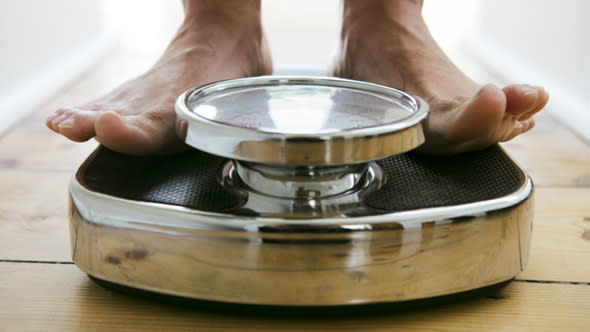New ways to lose weight

Pic: Getty
Between the mince pies, the roast turkey and the Christmas drinks parties, Brits up and down the country will be feeling the festive bloat by the time they ring in the New Year.
Gym memberships and fitness DVDs could be the key, but if you're struggling to keep yourself motivated, a number of 2013 studies have highlighted possible tips that could help you to shift those unwanted pounds more quickly.
Related Searches
Sleep it off
A small study conducted by researchers at Brigham Young University suggests the right type and right amount of shuteye could help you to lose weight. Tracking the movements, activities, waking and sleeping times of 300 female students, the scientists found that waking up and going to sleep at the same time every day showed a strong link to lower body fat.
Furthermore, high quality sleep was associated with lower body fat, while getting less than six and a half hours, or more than eight and a half hours' sleep correlated with higher body fat.
Put dairy on the menu
Anyone trying to lose weight in 2014 is likely to be shunning the cheese and full-fat milk. But scientists have reason to believe that dairy should most definitely form part of your diet.
Researchers looking at the results of multiple controlled trials back in 2012 found that people who consumed at least three servings of dairy each day (as part of a calorie controlled diet) not only benefitted from greater weight loss, but also significantly reduced body fat mass and waist measurements. They also found that even for those who were not on a weight loss diet could eat the recommended daily amount of dairy without fear of piling on the pounds.
What's more, dairy is a fantastic source of proteins, which help to build muscle tissue, and will keep your bones in good nick. So put a glass of milk, tub of yoghurt or two slices of cheese on your menu.
Hit the H2O
It's natural, calorie free and great both for your physical health and your mental alertness, and now water has been shown to aid weight loss.
A review of water studies by the Berlin School of Public Health in Germany revealed three that linked increased water intake to greater weight loss in dieters.
Rebecca Muckelbauer, who led the research, reported that women who drank two cups of water before a meal lost an average of four pounds more than those who didn't, and those who drank more than a litre a day were also more successful when it came to shedding weight. Ms Muckelbauer also suggested that water may increase your ability to burn calories by boosting the amount of energy the body uses.
Time it right
It has long been thought that eating before 6pm is key to maintaining a healthy weight, and in 2013 there was further research to suggest early eating could aid weight loss.
In a combined study by Brigham and Women's Hospital in Boston and the Universities of Murcia and Tufts, found that late-lunching Spaniards lost an average of 7.7kg, compared to 9.9kg shed by those who ate their main meal before 3pm, though consumed a similar number of calories.
Study author Dr Frank Scheer wrote in the journal International Journal of Obesity: "Our results indicate that late eaters displayed a slower weight-loss rate and lost significantly less weight than early eaters, suggesting that the timing of large meals could be an important factor in a weight loss program."
Pay attention
Technology is playing an ever more important role in our lives, and that goes for dieting too.
Earlier this year, researchers at the University of Liverpool here in the UK developed a smartphone app aimed at helping dieters to lose weight by recording their food consumption.
%VIRTUAL-AFCSponserAds%
Using the app, the 12 overweight and obese participants fist photographed the food or drink they were about to consume. A text message then prompted the volunteers to answer a number of questions when they'd finished the meal, with the help of a dropdown menu. Finally, the app sent users an interactive chronological slide show of everything they had consumed during the day.
Over a four-week period, the average weight loss of the participants was 1.5kg, a figure similar to a previous two-month trial investigating the impact of dietary and exercise advice, and eating habits. Dr Eric Robinson, who developed the app, claims simply "raising awareness" of eating and weight loss could play a key role in helping people lose weight.
Have you found a new and successful way to lose weight? Let us know below...



